Plants ordered now will ship Spring 2026 🙂
Ashitaba, (Angelica keiskei koidzumi), potted plant, organic
$8.50
Family: Carrot (Apiaceae)
Hardy to Zone 7 to 12.
(HACHIJO-SOU, Tomorrow’s Leaf) Biennial native to Hachijojima Island in Japan. This is the standard type with green leaves and stems. High chlorophyll plant with yellow sap, unique among Angelicas due to its edibility and the presence of both B 12 and the flavonoids known as “chalcones.” Mature size is about 4 feet wide and flowering to about 5 feet tall. The plant requires warm temperatures for optimal growth–75 to 85 degrees F. They need at least 6 hours sunlight daily to thrive! It is often best to greenhouse them, although coastal climates (such as San Francisco area) seem to work pretty well for outdoor cultivation, and zone 8 growers may find that these plants do fine in regular open garden conditions. For best results, plant into a large container of compost. Space plants 3 feet apart.
Potted plant certified organically grown

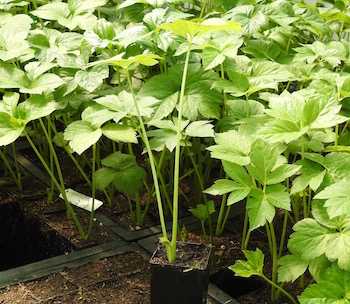
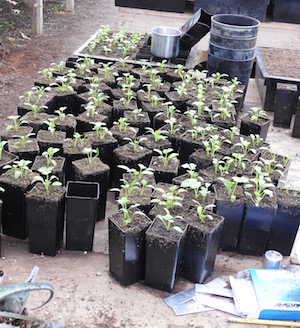
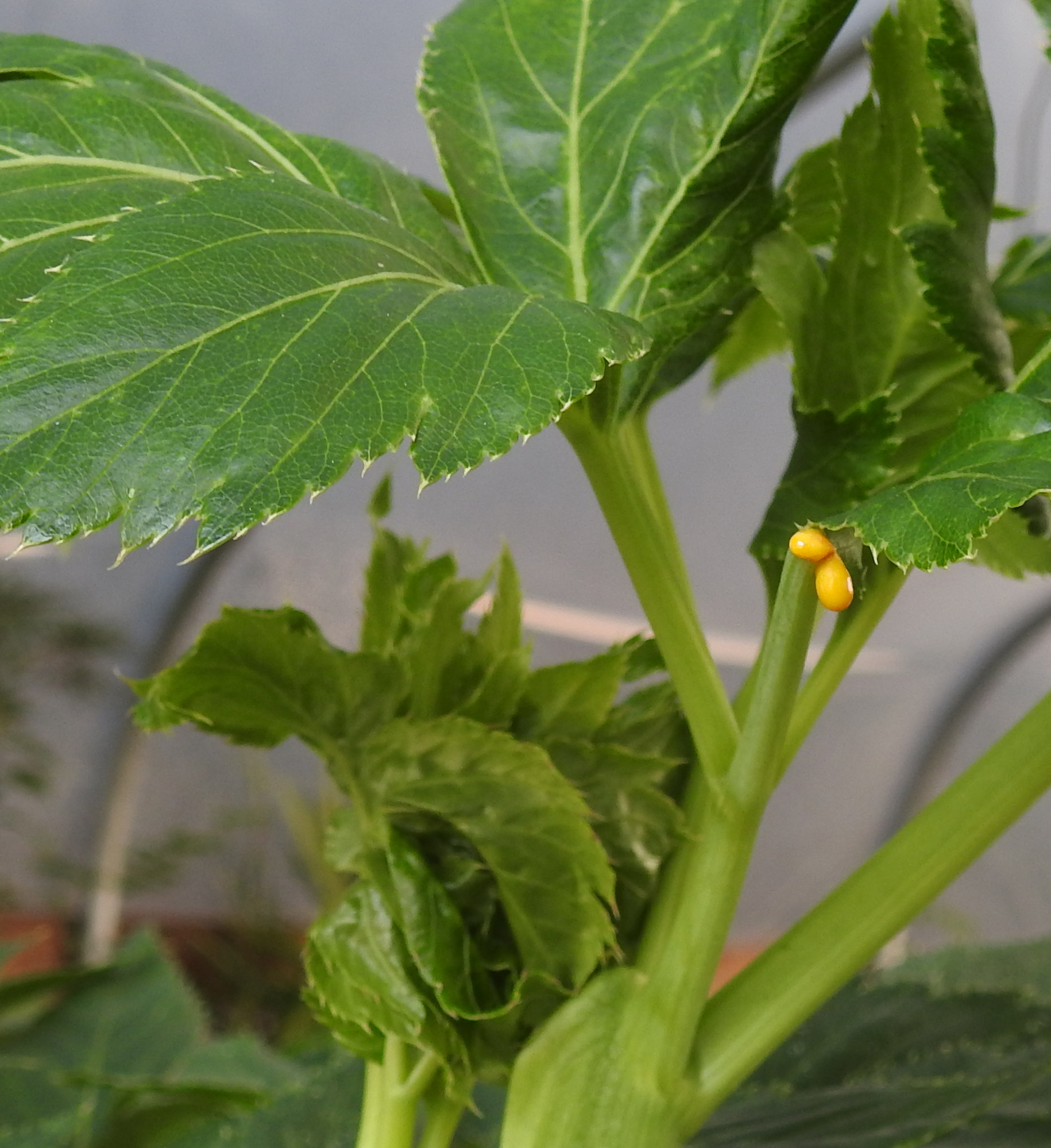

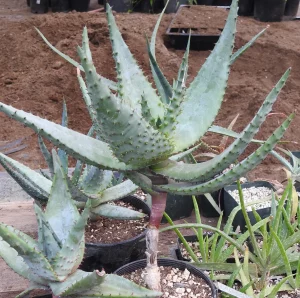
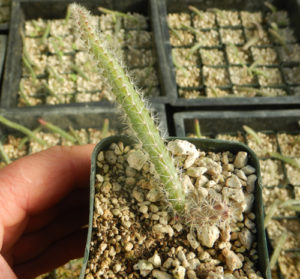
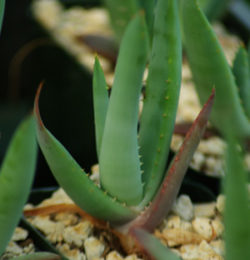
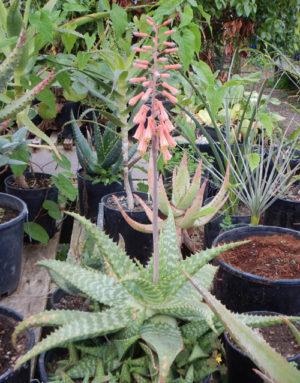
William –
Would like to know what is the best way to produce it
Upvote if this was helpful (0) Downvote if this was not helpful (0) Watch Unwatch Flag for removal
Richo Cech –
Ashitaba does well in the South in the humid shade. It does well as a potted plant in rich soil and likes frequent watering. Harvest on an ongoing basis. I believe we still have 9-inch potted plants available. Click around to find.
Upvote if this was helpful (0) Downvote if this was not helpful (0) Flag for removal
John (verified owner) –
I can’t find anywhere how much sun is ideal for Ashitaba. Only it needs a minimum of 6 hours of sunlight. But what is optimal, I live in Southern California and the plant can get way more than 6 hours. I have the Ashitabas in pots, but want to plant them in the ground too.
What is the optimal amount of sunlight for Southern California by the Ocean Zone 10B?
Upvote if this was helpful (0) Downvote if this was not helpful (0) Watch Unwatch Flag for removal
Richo Cech –
Hi John,
Thanks for contacting. This is a perceptive question since ashitaba really is light sensitive in certain ways. In hot and dry southern oregon i always keep my outdoor plants in 40% shade conditions, otherwise they burn up. In maritime exposure zones 8 to 10 (that’s you) they’re going to do fine in full sun. Make sure the root zone is moist and dressed with compost. You can get a better feel for the plant by reading “Growing Plant Medicine Vol 1 page 273.
All the best,
Richo
Upvote if this was helpful (1) Downvote if this was not helpful (0) Flag for removal
Question
Susan James –
When can I plant my Ashitaba seeds in a Z9. Temps remain in the 40’s with rain several 30-50% days per week. Northern California.
Upvote if this was helpful (0) Downvote if this was not helpful (0) Watch Unwatch Flag for removal
Richo Cech –
Hi Susan,
Thanks for contacting. The seeds are short-lived and should be put in moist refrigeration right away on receipt and left there for a period of 30 days. They should then be planted to pots indoors where it is warm, barely covered, and kept moist until germination, which is on about day 15. If you have trouble getting this plant going from seeds, please know that we are currently very well supplied with some of the sturdiest starts we’ve ever had–you can buy the plant. Richo
Upvote if this was helpful (2) Downvote if this was not helpful (0) Flag for removal
Susan James –
Humm…. I didn’t get my seeds in refrigeration when I received them . Looks like I’ll buy the plants from your well stocked inventory. I plant all my Ashitaba in the same bed. Many thanks!
Upvote if this was helpful (0) Downvote if this was not helpful (0) Flag for removal
Jaclyn (verified owner) –
Zone 10A. This is planted last year from a seedling I purchased from your site. The mature plant is about 5 ft tall, with loads of bees and swallowtail butterfly made a nursery here for the caterpillar. Beautiful plant!
Upvote if this was helpful (1) Downvote if this was not helpful (0) Watch Unwatch Flag for removal
Question
Didi –
I got my 1st ashitaba from you years ago. I collected the seeds ,even kept them in the fridge a few months, but the germination rate was horrible. Can you help?
Upvote if this was helpful (2) Downvote if this was not helpful (0) Watch Unwatch Flag for removal
Richo Cech –
hi didi, thanks for staying in touch and i think its pretty cool that you were able to raise an ashitaba to seed stage. if you’re collecting seeds from just one plant the germination will not be so good–its an apiaceae, they like to outcross. Anyhoo, the best way we can help you at this stage is to provide more ashitaba plants. They are extraordinary. richo
Upvote if this was helpful (2) Downvote if this was not helpful (0) Flag for removal
Question
Heather Stanton (verified owner) –
I have one of these coming. I happened across a you tube video that says it likes dappled shade, as in a forest edge? This would seem to be incorrect as you are saying at least 6 hours of sun? Maybe in the hottest months of summer it would like some afternoon shade (I’m in zone 5b in southern NY state but these days, we can get to 85-90 on a number of days in July and even August).
Upvote if this was helpful (1) Downvote if this was not helpful (0) Watch Unwatch Flag for removal
Richo Cech –
hello heather, its a bit hard to extrapolate due to regional variations. this is an herb endemic to semitropical islands. it does best in a maritime aspect and will take full sun there. up country, dappled shade is a good bet. insufficient light is not good for the plant. it withstands full sunlight especially in the humidity of a greenhouse. in a hot summer garden, it might suffer. best approach–what you did–order a plant–they are particularly nice this year–and play around with it, find out what it likes, half-close your eyes and survey the landscape and see if a spot glows out for it. r
Upvote if this was helpful (6) Downvote if this was not helpful (0) Flag for removal
hstanton6 (verified owner) –
I think I will put it in a pot, in a spot that get 6-8 hours sunlight and then afternoon shade, and water it often (so that the soil doesn’t dry out, without water logging it) and see how it likes it. We are quite humid here in NY State, (it’s a “humid continental climate”, we get many days of precipitation throughout the year (although less in late June, July, August, and September)); but our summers have been getting warmer than they used to be, especially July and early August (more days 85-to low 90’s); so some shade in the hottest part of the day should work. If it seems overheated I will move it to 6 hours of sun and the rest of the day shade. Thanks for making this plant available…it sounds like a wonder!
Upvote if this was helpful (2) Downvote if this was not helpful (0) Flag for removal
Alice –
Hi Richo, Will this ashitaba plant do well in SW Florida, zone 9b/10a? It’s in the high 90’s now in July, ’22, but we will get at least one week of close to freezing in the winter. Will it survive outside for me all year? Or at least come back?
Upvote if this was helpful (0) Downvote if this was not helpful (0) Flag for removal
Richo Cech –
Hi alice, the ashitaba is a monocarpic biennial–it dies after flowering. so yes, it will overwinter the first year, you’re really warm there, and then you can expect it to flower in the second year. the main thing is to use it when you have it–an invigorating food. richo
Upvote if this was helpful (0) Downvote if this was not helpful (0) Flag for removal
Question
Alyston –
Hi Richo, If I plant ashitaba out in the landscape in the San Francisco Bay Area will they become invasive? PS the three I bought previously are doing really well in containers. Thanks!!
Upvote if this was helpful (0) Downvote if this was not helpful (0) Watch Unwatch Flag for removal
Richo Cech –
hello alyston, goodness, no, hardly an invasive plant, a rare and desirable angelica! r
Upvote if this was helpful (0) Downvote if this was not helpful (0) Flag for removal
Question
Candice –
Can I plant this in Washington State? The ashitaba?
Upvote if this was helpful (0) Downvote if this was not helpful (0) Watch Unwatch Flag for removal
Richo Cech –
hi candice, it will do ok as a summer annual in any garden, really. to overwinter, it needs to be in a greenhouse or coastal. r
Upvote if this was helpful (0) Downvote if this was not helpful (0) Flag for removal
Question
Jaclyn (verified owner) –
Would like to know how long did it take for you to grow the Ashitaba potted plant for sale? Thank you
Upvote if this was helpful (0) Downvote if this was not helpful (0) Watch Unwatch Flag for removal
Richo Cech –
Hi Jaclyn,
We started the seeds in the autumn of 2021, so now in spring of 2022 they are rather nicely developed 5-month-olds. r
Upvote if this was helpful (2) Downvote if this was not helpful (0) Flag for removal
ferraria –
Crossing my fingers….
Upvote if this was helpful (0) Downvote if this was not helpful (0) Watch Unwatch Flag for removal
Richo Cech –
not sure what is meant by this but it is true our ashitaba starts this year are the best we’ve ever managed. r
Upvote if this was helpful (0) Downvote if this was not helpful (0) Flag for removal
Question
Jaclyn (verified owner) –
We have been enjoying tea from the vibrant Ashitaba plant I purchased from your store, and were able to save some seeds after harvest.
Question:
Can I leave the plant in the ground after seeds harvest? Will it sprout more leaves come spring?
Thank you
Upvote if this was helpful (0) Downvote if this was not helpful (0) Watch Unwatch Flag for removal
Richo Cech –
hi there, good for you, that is actually rather stellar. getting ashitaba seeds is not that easy. anyhow, no, it is monocarpic–once it flowers and seeds, the root will hold on for a bit (and you can dig and use the root at that stage) and then eventually rot away. r
Upvote if this was helpful (0) Downvote if this was not helpful (0) Flag for removal
Kate Boyington (verified owner) –
This is a great tea plant. I keep it indoors for winter here in Minnesota and it’s a very easy plant to care for. The tea has a very fresh taste.
Upvote if this was helpful (0) Downvote if this was not helpful (0) Watch Unwatch Flag for removal
Question
Bonnie –
I’m zone 5 b. Is it crazy to try to accommodate this plant..? Indoor wintering, lights? Thank you.
Upvote if this was helpful (0) Downvote if this was not helpful (0) Watch Unwatch Flag for removal
Richo Cech –
Hi Bonnie,
In 5b one grows this as a summer annual and makes use of it throughout the growing season. As a biennial you really don’t get anything much in the second year except a few large leaves and the seeds, and lacking a heated greenhouse it isn’t practical to think of overwintering ashitaba in zone 5.
Richo
Upvote if this was helpful (0) Downvote if this was not helpful (0) Flag for removal
Question
A. Stead –
Will Ashitaba grow outside in an area with a couple of freezes each winter? We are in Portland, Oregon and do occasionally freeze in Jan or Feb – never for long though and the grown rarely freezes.
Upvote if this was helpful (0) Downvote if this was not helpful (0) Watch Unwatch Flag for removal
Richo Cech –
Hello A.,
Portland is a marginal zone for overwintering ashitaba. It will overwinter but not happily. Better Newport, or a greenhouse. Richo
Upvote if this was helpful (0) Downvote if this was not helpful (0) Flag for removal
mbenziger (verified owner) –
Hello, good morning. When will you have more smaller ashitaba plants available? Can we give you an order for ashitaba to be shipped before the end of the year? Thank you mike benziger mbenziger@aol.com
Upvote if this was helpful (0) Downvote if this was not helpful (0) Flag for removal
Richo Cech –
Hello! Large ashitaba are currently order-able–on sale and will ship before the end of the year–at this point specifically in October. If you wait until this coming monday (8/9/2021) you’ll also be able to take advantage of a 10% sitewide discount. I do have a large population of new ashitaba coming on and I hope to have them sized-up for sale starting in January, for delivery in the spring. Richo
Upvote if this was helpful (0) Downvote if this was not helpful (0) Flag for removal
silvanus –
other than books, do you ship images of the plants, elsewhere? I want a picture of it on my lunchroom and in my chapel
Upvote if this was helpful (0) Downvote if this was not helpful (0) Watch Unwatch Flag for removal
Richo Cech –
how would we do this?
Upvote if this was helpful (0) Downvote if this was not helpful (0) Flag for removal
Alice Luib –
Will this survive in California
Upvote if this was helpful (0) Downvote if this was not helpful (0) Watch Unwatch Flag for removal
Richo Cech –
Yes, especially in the bay area. r
Upvote if this was helpful (0) Downvote if this was not helpful (0) Flag for removal
Question
Mary –
I’m trying to get ready before my plants arrive. How big of a container should I have ready for each plant? Would a squat 15-gallon pot do? A tall 15-gallon pot? Something else? Thank you.
Upvote if this was helpful (0) Downvote if this was not helpful (0) Watch Unwatch Flag for removal
Richo Cech –
Hi Mary,
OK, that makes sense, directions do come with it, and its good to be prepared. I think it works best to put to successively larger pots starting with a 1-gallon and moving up to a 15 gallon. I do think the tall pot would be better–the plant is taprooted.
Richo
Upvote if this was helpful (0) Downvote if this was not helpful (0) Flag for removal
Question
Jaclyn (verified owner) –
The ashitaba plant I planted in good compost last December is finally showing some growth as the weather warms in zone 10b, however , as shown in picture, some leaves turned from green to yellow very soon. Is it normal ? It does get at least 4 hour sun and soil I kept moist. I think it may be the cold weather last few months. Wonder if you can give me some advice ? Thank you
Upvote if this was helpful (2) Downvote if this was not helpful (0) Watch Unwatch Flag for removal
Richo Cech –
Hello Jaclyn,
A nice photo like that is worth a thousand words. Plant looks healthy and primed to grow quite large this season. The yellow is caused by the chalcones–the active constituent–shining through. Richo
Upvote if this was helpful (0) Downvote if this was not helpful (0) Flag for removal
Question
victoria-0228 –
How would I go about saving the seeds from Ashitaba? Is it best to let them dry on the plant and then collect?
Upvote if this was helpful (0) Downvote if this was not helpful (0) Watch Unwatch Flag for removal
Richo Cech –
Hi Victoria, It is best to let them mature on the plant and remove before dry. You can tell they are mature because the “bivalve” starts to split apart. That’s when you harvest them. They should still be pretty green. r
Upvote if this was helpful (0) Downvote if this was not helpful (0) Flag for removal
MaryEllen –
Do you ship in California United State?
Upvote if this was helpful (0) Downvote if this was not helpful (0) Watch Unwatch Flag for removal
Richo Cech –
Yes, we’re just right here above you in Oregon. r
Upvote if this was helpful (0) Downvote if this was not helpful (0) Flag for removal
Richo Cech –
Hello Ness, Yes, people do have success growing Ashitaba in the midwest. It likes the humid days and warm nights. Choose fertile soil in the shade. Make use of the plant while you have it–overwintering really works best in a heated greenhouse. Richo
Upvote if this was helpful (0) Downvote if this was not helpful (0) Watch Unwatch Flag for removal
Lizzie (verified owner) –
I’m successfully growing ashitaba in raised beds in the mission district of San Francisco. The plants probably get about 5-6 hours of dappled sun daily. They like moisture, so planting them in full sun here wasn’t as successful. I love these plants!
Upvote if this was helpful (0) Downvote if this was not helpful (0) Watch Unwatch Flag for removal
Richo Cech –
Lizzie,
Thank you for this informative post. It is the nuances of plant placement that allow for the growing of rare species.
Richo
Upvote if this was helpful (0) Downvote if this was not helpful (0) Flag for removal
Wendy Ward –
Hi Rich,
Since I live in an apartment and can only grow plants in pots, when I buy this starter plant, how many week/months will I need to move it to a 1 gal then 2 gal then 5 gal then 7 gal container?
Upvote if this was helpful (0) Downvote if this was not helpful (0) Watch Unwatch Flag for removal
Admin Richo Cech –
Hi Wend, Pretty much according to the growth of the plant. According to the directions that come with the plant, transplant to a gallon pot on receipt, then when the roots fill that pot, transplant up to a 3 gallon, and when the roots fill that pot, go to a 5 gallon to finish. The plant wants pure compost, regular watering and a warm, sunny exposure.
Richo
Upvote if this was helpful (0) Downvote if this was not helpful (0) Flag for removal
Jessica Powell (verified owner) –
My plants arrived 2 days after shipping. They were very healthy. It’s been 2 days since they’ve arrived, been repotted, and have perked up nicely. I’m very pleased with my order and look forward to ordering more soon!
Upvote if this was helpful (0) Downvote if this was not helpful (0) Watch Unwatch Flag for removal
Michelle Warren (verified owner) –
I love this plant. It grows well for me in Texas. Just discovered that it is a host plant for black swallowtail butterflies. The caterpillars love it too!
Upvote if this was helpful (0) Downvote if this was not helpful (0) Watch Unwatch Flag for removal
Maria Esperanza Mateum (verified owner) –
Hello I’m in Houston and can it grow -I need to buy and checking if it can be good to our hot and humid weather
Upvote if this was helpful (0) Downvote if this was not helpful (0) Flag for removal
Richo Cech –
Hello Maria, Yes, hot and humid and shaded is very good for ashitaba. Also, it likes to grow near water and Houston is on the bay so I think it is a very good choice. Also, quite difficult to start from seed, so if you get the plant, then we already did that for you. Richo
Upvote if this was helpful (0) Downvote if this was not helpful (0) Flag for removal
Tammy Williams (verified owner) –
Great growing, looks wonderful and taste great have been taking little nibbles here and there. 🙂
Upvote if this was helpful (0) Downvote if this was not helpful (0) Watch Unwatch Flag for removal
Susie (verified owner) –
The quality of Strictly Medicinal’s shipped plants were above expectation, they come with a shipping tracking number to watch carefully so they can be rescued in their time of disruption as soon as possible, they arrived in 48 hours of shipment. Upon reading careful instructions and pulling each plant out, surprisingly they came out nearly glowing, with a few crinkles and bends on only their leaves, they sat upright immediately welcoming their new home. The careful packaging was not limited to keeping them safe from battening, but with wishes of luck, love and health. Kind regards and much gratitude!
Upvote if this was helpful (0) Downvote if this was not helpful (0) Watch Unwatch Flag for removal